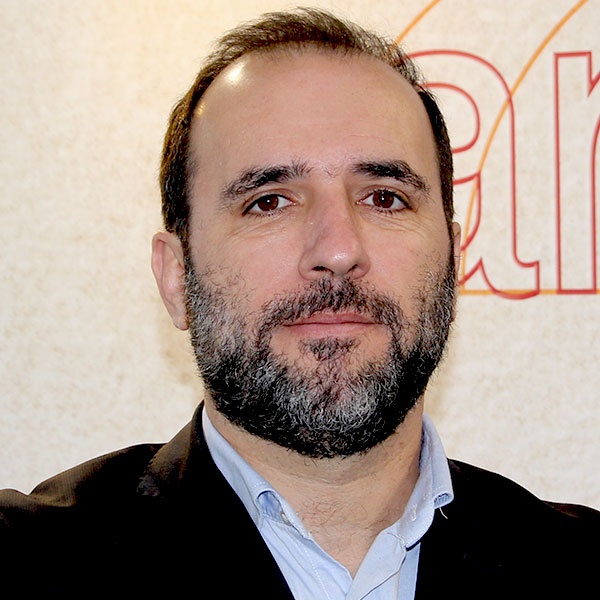Member State Interview
The Once-Only view from Portugal
In January 2023, we discussed the Portuguese implementation of the Once-Only Technical System (OOTS) with Jorge Sousa, national coordinator for Portugal in the EU Coordination Group on the Single Digital Gateway. Jorge is highly experienced in managing large IT and digital projects, especially around the implementation of the European Services Directive 2006/123/EC.
He shared with us his hands-on experience in the implementation of the Once-Only Technical System and his views on Europe’s on-going digital transformation.
Once-Only Technical System
The Once-Only Technical System connects EU public authorities, so they can exchange official documents and data at the citizen’s request. It puts into practice the Once-Only Principle, which states that citizens should not be forced to provide information to authorities if another authority already holds that information (certificates, credentials, or licenses, for example, known as ‘evidence’) in electronic format. The legal deadline for the implementation of the Once-Only Technical System is 12 December 2023.
The European perspective
We asked Jorge about the digital transformation of public services in Portugal, a top European destination for ‘digital nomads’. “For us a digital procedure is a fully online webform with an indication that everything runs online, remotely – every payment and every notification”. This is a testament to Portugal’s ambitions as a digital economy and society. “The final objective is to have every procedure fully online”, he added.
Single Digital Gateway Regulation
The Single Digital Gateway Regulation (Regulation (EU) 2018/1724) (SDGR) is a multifaceted EU-wide initiative that strives to create the digital infrastructure required to overcome these challenges. It aims to help citizens and businesses make best of the Single Market. Article 14 of the Single Digital Gateway Regulation (EU)2018/1724 mandates the creation of the Once-Only Technical System.
Jorge also sees significant operational synergies between national objectives and the Single Digital Gateway Regulation. The challenges of a highly ambitious project like the Once-Only Technical System are not themselves novel for Portugal. “This objective [digital transformation of public services following the Once Only principle] has been present for some time. But we didn’t have a clear idea of how to implement it. The Single Digital Gateway Regulation [Once-Only Technical System] has brought us a clear picture and leverage. Our plan is not just to comply […] but to reuse the infrastructure”.
Looking specifically at the Once-Only Technical System, Jorge notes that in Portugal the vast majority of the 21 procedures specified in Annex II are already digitalised. However, “Procedure 16” (notification of business activity) will be hard to estimate. “[This procedure] obliges us to implement the 3000+ procedures identified at this moment under both the Services and the Professional Qualifications Directives, and we are yet to be sure of the global scope”.
Procedure “Notification of a buisness activity”
Notification of business activity, permission for exercising a business activity, changes of business activity and the termination of a business activity not involving insolvency or liquidation procedures, excluding the initial registration of a business activity with the business register and excluding procedures concerning the constitution of or any subsequent filing by companies or firms within the meaning of the second paragraph of Article 54 TFEU.
Implementation in Portugal
The Administrative Modernization Agency (AMA) has been working closely with authorities competent for administrative procedures so that they can provide evidence in digital format. “The agency is trying to modernise the state for over a decade - it takes time”. But Jorge notes that the Once-Only Technical System isn’t just another project. “It’s large and it will have an impact”.
New in his role as a Portuguese National Coordinator for the implementation of the Single Digital Gateway, Jorge has been involved in this project since the beginning. “I was at some point in charge of implementing the single point of contact in Portugal” under the Services Directive.
Administrative Modernization Agency (AMA)
The Administrative Modernization Agency (AMA) is the Portuguese public service in charge of modernisation, simplification, and digital transformation of public administration, under the purview of the Secretary of State for Innovation and Administrative Modernization. The Administrative Modernization Agency (AMA) is the public institute responsible for promoting and developing administrative modernization in Portugal, and its activities are divided into three axes: Digital Transformation, Omnichannel Public Service and Administrative Simplification. It is under the supervision of the Secretary of State for Digitization and Administrative Modernization.
Understanding he was perhaps the natural choice to work on Portugal's ‘Once-Only’ national implementation, this is one of several projects for him. As with any project, Jorge would prefer to have a little more time. But this isn’t his first experience of such work: “we will get there”.
In Portugal “most of the building blocks had already been implemented”. Concerning the eID building block, Jorge proudly notes that Portugal was one of the first countries to notify their eIDAS node, and so connect to Europe’s system for cross-border user authentication. Jorge concludes that there are two or three more building blocks to deploy, such as the OOTS Evidence Broker and that this needs to be done quickly. “We want to make it work".
Asking what the Commission could do to help, Jorge says he welcomes any input. “All ideas are good – we are always interested in new ways of working”.
Common Services and building blocks
To provide comprehensive support and proper exchange of evidence between Data Services and Online Procedure Portals, the Once-Only Technical System uses Once-Only common services and additional supporting services. It reuses digital building blocks, such as eID and eDelivery, to help build the core ‘Once-Only' infrastructure.
The work is, unsurprisingly, very hands-on. “We are speaking to competent authorities on how to proceed, with system architects etc., explaining what we need and who we need”. Building the Technical System is one thing, Jorge notes, “it is different to have procedures providers involved in the system to reach critical mass of evidences available in the technical system”, he adds, referencing his experience with the Services Directive.
Looking at a concrete example, Jorge considers evidence mapping in educational diplomas. “Portugal doesn’t have a centralised system that provides information on diplomas. So, you need to contact every single university or school. With hundreds eligible, you can imagine the scale of the exercise”.
He further notes that in some areas the on-boarding will be easier, in taxation or transport, for example. In these cases, there are individual, central (administrative) institutions to liaise with. “There will be gaps in procedures in [administrative] areas with different levels of autonomy”.
Evidence mapping
Evidence mapping means associating the evidence types issued in one Member State to facts or compliance with procedural requirements that must be proven in a procedure in another Member State. This means when a user requests the retrieval of evidence from another Member State in the context of an online procedure, the portal can locate the right evidence provider.
As of the end of 2023, the Once-Only Technical System will streamline cross-border online procedures by allowing citizens and businesses to supply the same data to public authorities only once. With the December 2023 deadline fast approaching, it is certainly not premature to look to the future.
“It’s a natural progression. How much will it be used? Maybe some sectors will take advantage [earlier than others]”. Jorge is sceptical that there will be intense use of the Once-Only Technical System immediately after it goes live, he rather sees it evolving, in the same way that many European innovations with a legislative basis are advancing (in data, semantics or machine to machine integration, for example). “Europe is slowly and steadily growing”.
We asked if Portugal would be one of the Member States participating in the April Once-Only Technical System Projectathon, a large-scale testing session takin place in Brussels. Jorge felt it likely that his teams would join and noted that it would also be a unique occasion to meet other national coordinators face-to-face to understand their thoughts and concerns.
Projectathon
Projectathons are large-scale testing sessions allowing national implementation teams to test their implementation s of the Once-Only Technical System in a safe environment. This includes peer-to-peer testing of the retrieval, transmission, and reception of evidence.
We thanked Jorge for his time and the conversation.
Interviews with national implementers are a unique chance to look beyond the technical cross-border interconnection of digital services in Europe and get to know the architects of our digital Europe and what motivates them.
Authors: Thomas Fillis & Michael Ulrich, Once-Only Technical System Team (DIGIT-EXT)




